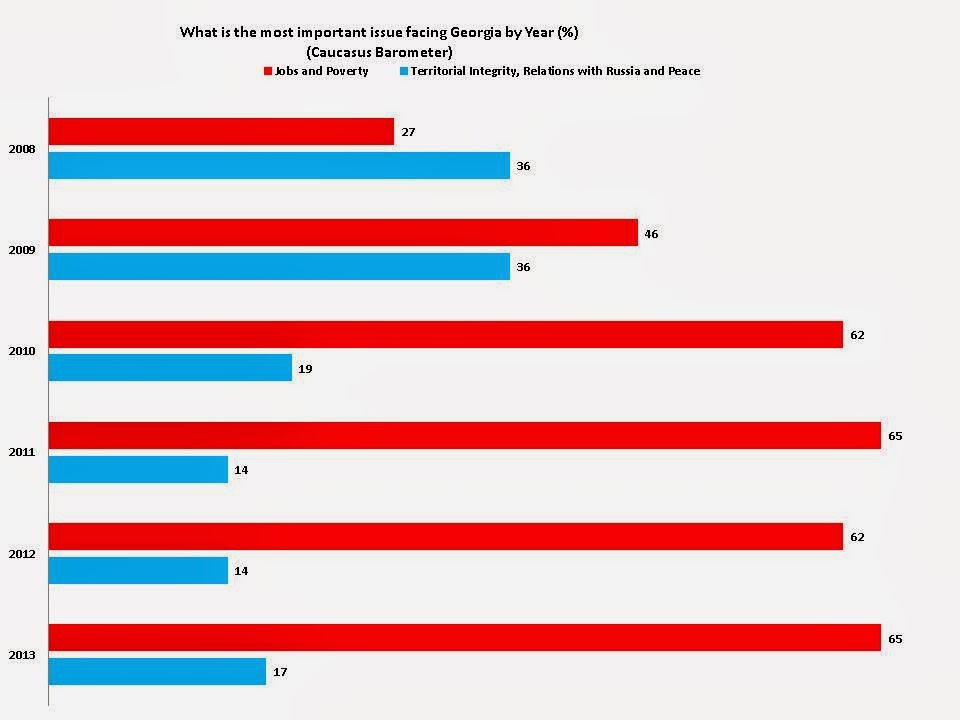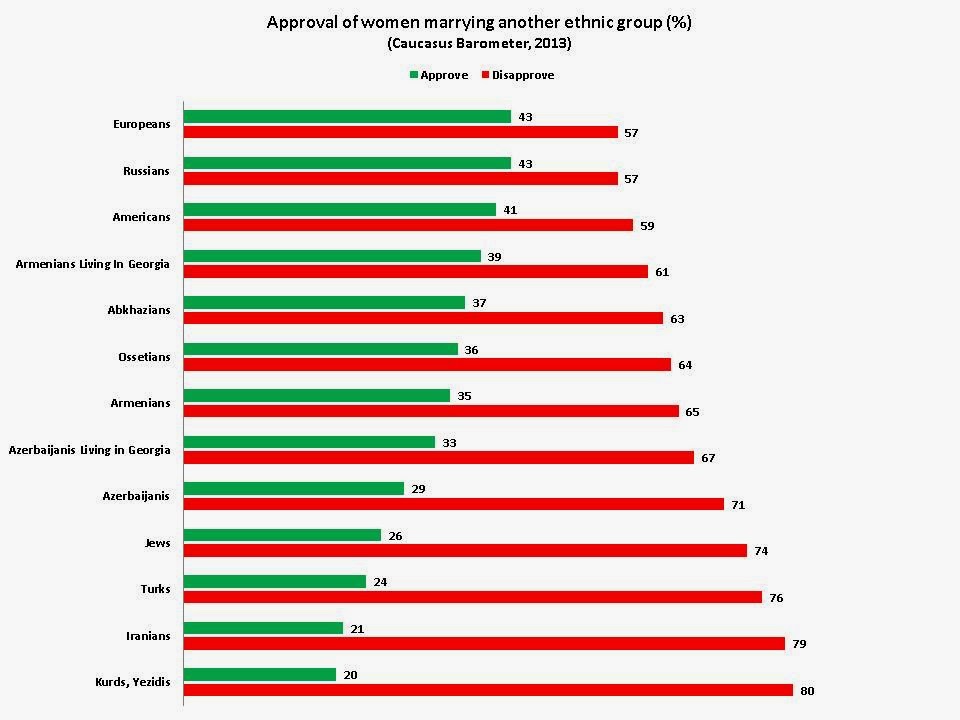In Stephen Jones’ 2013 book, Georgia: A Political History since Independence, he argues that economic issues are more important to the average Georgian than issues related to nationalism. According to Benedict Anderson’s classic exegesis of nationalism, Imagined Communities, a nation is defined as, “an imagined political community – and imagined as both inherently limited and sovereign” (Anderson 2006). Anderson’s definition, in this blog post, is considered in conjunction with the oft quoted expression of Ilia Chavchavadze, “Homeland, Language, and Faith,” which referred to those things most important for Georgia in his view. As such, issues Georgians believe to be the most important issue facing the country over time and how Georgians feel about Georgian women marrying men of other ethnic groups are examined to gain an understanding about some aspects of nationalism in Georgia.
Each year the Caucasus Barometer (CB) asks (as an open-ended question), “What do you think is the most important issue facing Georgia at the moment?” The following graph shows that the only time territorial integrity, relations with Russia and peace have been more important than jobs and poverty in Georgia was in 2008 which was also the year of the August war with Russia. Notably, data collection for the 2008 CB was conducted only three months after the war. Furthermore, only one year later, economic considerations once again became the number one perceived issue facing the country. Considering that territorial sovereignty is considered to be a critical aspect of nationalism, it is interesting that Georgians have been more likely to consider economic issues to be the most important issue facing the country rather than issues related to territorial integrity.
Note: This chart has combined responses for jobs and poverty, as well as territorial integrity, relations with Russia, problematic relations with Russia and Peace. In 2008, a show card was used for this question during the Caucasus Barometer interviews. The card offered a number of issues for respondents. After 2008, a show card was not used and the open ended question mentioned above was asked. This may have effected the results to survey responses between 2008 and other years.
A second way of assessing how Georgians feel about other ethnicities, is to examine to what extent Georgians approve or disapprove of Georgian women marrying members of other ethnic groups. The graph below shows that most Georgians do not support Georgian women marrying men of other ethnicities. This shows a certain level of social conservatism among Georgians, but this conservatism may be religious rather than ethnic as nationalism in Georgia is also tied to religion. The graph shows that Georgians have the highest level of approval for Georgian women marrying men of other ethnic groups that primarily tend to be Orthodox or another Christian group – Russians, Europeans, Americans, Abkhazians, Ossetians and Armenians.
This blog post has looked at several factors related to Georgian nationalism. It shows that economic issues have been consistently more important to Georgians than issues related to territorial integrity since 2008–a year which saw war with Russia. Finally, the blog looked at trends in how Georgians feel about Georgian women marrying men of other ethnicities and found that religion might play a bigger role than ethnicity when it comes to marriage.
To further explore issues related to nationalism, ethnicity, and economics we recommend exploring our data further using the ODA tool here, or reading Stephen Jones’ chapter on “The Myth of Georgian Nationalism.” For readers who read in the Georgian language, we also recommend this blog post on tolerance in Georgia and the South Caucasus more generally.










